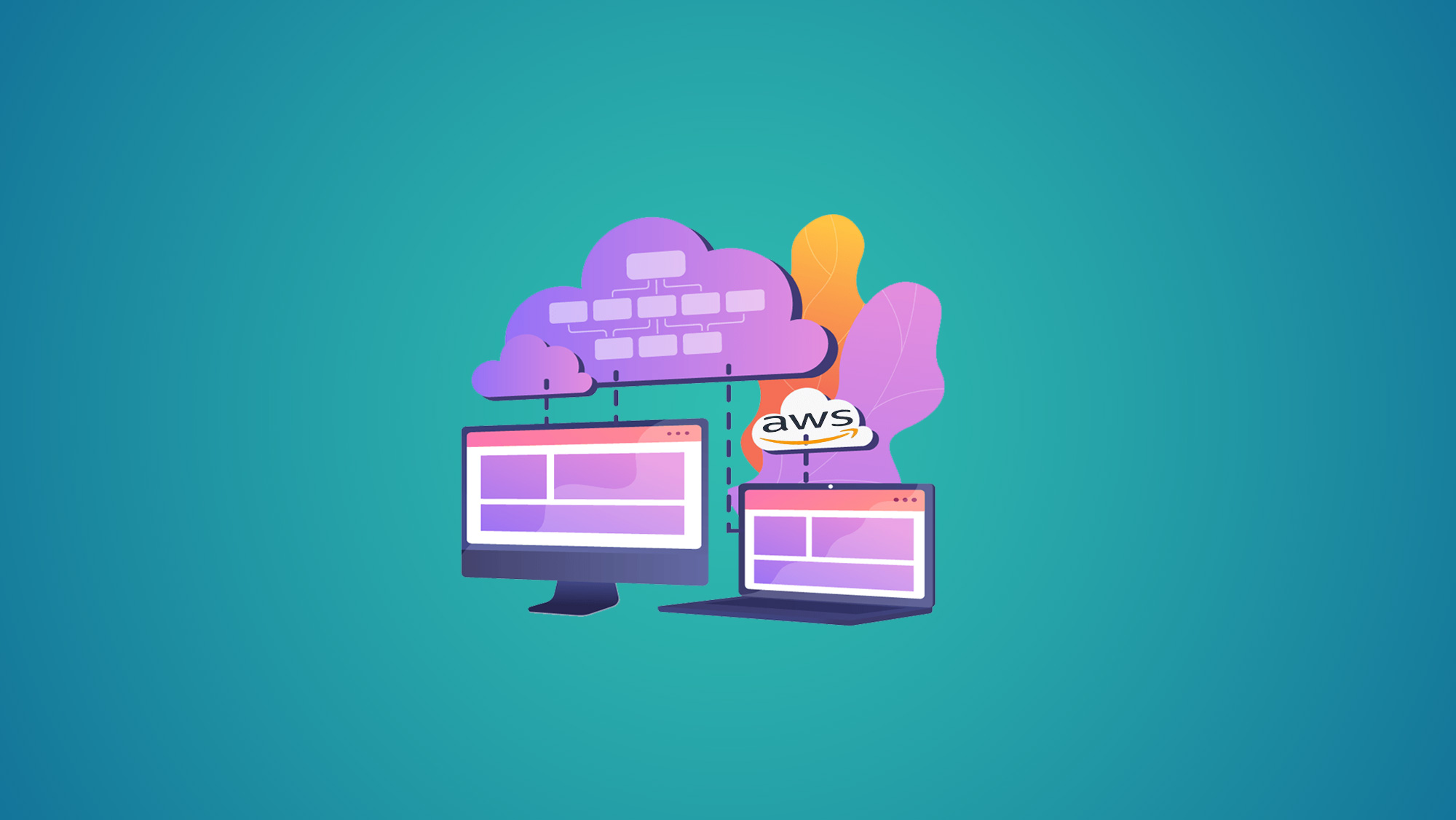Everything You Need To Know About AWS SysOps Training
Introduction:
As more organizations shift their infrastructure to the cloud, the demand for skilled professionals who can effectively manage and operate systems on the Amazon Web Services (AWS) platform is on the rise. AWS SysOps training provides comprehensive knowledge and skills to become an AWS Certified SysOps Administrator. In this blog, we explore everything you need to know about AWS SysOps training, including its significance, topics covered, prerequisites, and career benefits.
What is AWS SysOps training?
Why is AWS SysOps training important?
Who can benefit from AWS SysOps training?
Best practices for AWS SysOps training:
How does AWS SysOps training
What is AWS SysOps training?
AWS SysOps training is a comprehensive program designed to equip professionals with the knowledge and skills required to effectively manage and operate systems on the Amazon Web Services (AWS) platform. It covers various topics including infrastructure management, deployment, monitoring, troubleshooting, security, storage, networking, and automation, enabling individuals to become proficient in AWS cloud operations. The training aims to enhance participants' ability to ensure the reliability, performance, and security of applications and systems running on AWS.
Why is AWS SysOps training important?
AWS SysOps training is important for several reasons:
- Effective System Operations: AWS SysOps training equips professionals with the knowledge and skills to efficiently manage and operate systems on the AWS platform. This ensures the smooth functioning of applications, high availability, and optimal performance.
- Enhanced Security and Compliance: AWS SysOps training focuses on security best practices and compliance requirements. It enables professionals to implement robust security measures, configure access controls, monitor for potential threats, and ensure compliance with industry standards.

Read More: Becoming an AWS SysOps Pro: Essential Training for Cloud Management |
- Cost Optimization: Through AWS SysOps training, individuals learn how to optimize resource allocation, monitor costs, and implement cost-saving measures. This helps organizations effectively utilize AWS resources and reduce unnecessary expenses.
- Reliable Infrastructure Management: With AWS SysOps training, professionals gain expertise in managing and maintaining AWS infrastructure. They learn to configure, scale, and automate resources to meet changing business needs, ensuring a reliable and scalable infrastructure.
- Troubleshooting and Performance Optimization: AWS SysOps training equips professionals with troubleshooting techniques, performance monitoring tools, and optimization strategies. This enables them to identify and resolve issues promptly, ensuring optimal application performance.
- Industry Demand: With the increasing adoption of AWS cloud services, there is a growing demand for skilled professionals who can effectively manage and operate systems on the AWS platform. AWS SysOps training provides individuals with a competitive advantage and expands their career opportunities in the cloud industry.
Who can benefit from AWS SysOps training?
AWS SysOps training can benefit various professionals, including:
- System Administrators: Sysadmins responsible for managing and maintaining systems on the AWS platform can enhance their skills through AWS SysOps training. It equips them with the knowledge to effectively manage infrastructure, troubleshoot issues, and optimize performance.
- Cloud Operations Engineers: Professionals working in cloud operations or DevOps roles can benefit from AWS SysOps training. It provides them with a deep understanding of AWS services, automation techniques, and best practices for efficient cloud operations.
- IT Managers: IT managers responsible for overseeing AWS infrastructure and operations can gain valuable insights from AWS SysOps training. It equips them with the knowledge to make informed decisions, ensure compliance, and optimize resource utilization.
- Solution Architects: Solution architects designing and implementing solutions on the AWS platform can enhance their skills through AWS SysOps training. It provides them with a comprehensive understanding of AWS services, infrastructure management, and best practices for scalable and reliable architectures.
- Developers: Developers working with AWS services can benefit from AWS SysOps training to gain a broader perspective on infrastructure management and operational considerations. It helps them design applications that align with best practices and leverage AWS services effectively.
- IT Professionals Transitioning to Cloud: IT professionals transitioning from traditional IT roles to cloud-based environments can benefit from AWS SysOps training. It provides them with the necessary skills and knowledge to adapt to the cloud and excel in their new roles.
Best practices for AWS SysOps training:
- Set Clear Learning Objectives: Define your goals and objectives for the training. Determine what specific skills or knowledge you want to gain from the AWS SysOps training program.
- Create a Study Plan: Develop a study plan that outlines your training schedule, study materials, and practice exercises. Allocate dedicated time for learning and stick to your plan.
- Hands-on Practice: AWS SysOps training involves practical exercises and labs. Make sure to actively participate in hands-on activities to apply the concepts you learn and gain practical experience working with AWS services.
- Utilize Official AWS Documentation: AWS provides comprehensive documentation for its services. Make sure to leverage the official AWS documentation as a reference throughout your training. It will provide additional insights and details on specific AWS services and features.
- Engage in Discussions and Forums: Join AWS communities, forums, and discussion groups to interact with other learners and professionals. Engaging in discussions can help you clarify doubts, gain different perspectives, and learn from others' experiences.
- Networking: Build connections with other professionals in the field of AWS SysOps. Attend conferences, webinars, or local meetups to expand your network and learn from experienced practitioners.
- Continual Learning: AWS SysOps training is just the beginning of your journey. Embrace a culture of continuous learning, stay curious, and explore advanced topics or specialized areas within AWS SysOps to further enhance your expertise.
How does AWS SysOps training
AWS SysOps training enhances your knowledge and skills in managing and operating systems on the Amazon Web Services (AWS) platform. Here's how AWS SysOps training typically works:
- Learning Objectives: AWS SysOps training begins by outlining the learning objectives and goals of the training program. These objectives define the key concepts, skills, and knowledge you will gain throughout the training.
- Training Materials: You are provided with training materials such as online modules, video tutorials, documentation, and practice exercises. These resources cover various topics related to AWS infrastructure management, deployment, monitoring, troubleshooting, security, storage, networking, and automation.
- Hands-on Labs: AWS SysOps training often includes hands-on labs and practical exercises. These labs allow you to apply the concepts and skills learned in a real AWS environment. You get the opportunity to interact with AWS services, configure resources, troubleshoot issues, and implement best practices.
- Instructor-led Sessions: Depending on the training format, you may have access to instructor-led sessions. Experienced instructors guide you through the training materials, answer questions, provide explanations, and share their expertise on AWS SysOps concepts and best practices.
- Certification Preparation: AWS SysOps training often prepares you for the AWS Certified SysOps Administrator - Associate certification. The training focuses on the specific knowledge and skills required to pass the certification exam and validates your expertise in operating and managing systems on the AWS platform.
- Self-paced Learning: Many AWS SysOps training programs offer self-paced learning options, allowing you to study at your own convenience. This flexibility enables you to allocate time according to your schedule and learn at a pace that suits you best.
- Continuous Learning: AWS SysOps training is a starting point for your cloud operations journey. It's important to adopt a mindset of continuous learning, staying updated with AWS services, and exploring advanced topics to deepen your expertise and adapt to evolving technologies.
Conclusion:
AWS SysOps training is a critical step for professionals who want to excel in managing and operating systems on the AWS cloud. It equips you with the knowledge, skills, and industry-recognized certification to navigate the complex world of AWS infrastructure management. Whether you are an IT professional seeking career advancement or an organization aiming to enhance its AWS operations, AWS SysOps training is a pathway to success. Embrace the training, explore the vast capabilities of AWS, and position yourself at the forefront of cloud operations excellence.
You May Also Like
These Related Stories

Streamline Cloud Management:Unlocking the Power of AWS SysOps Training

Everything You Need To Know About Developing on AWS Training



No Comments Yet
Let us know what you think